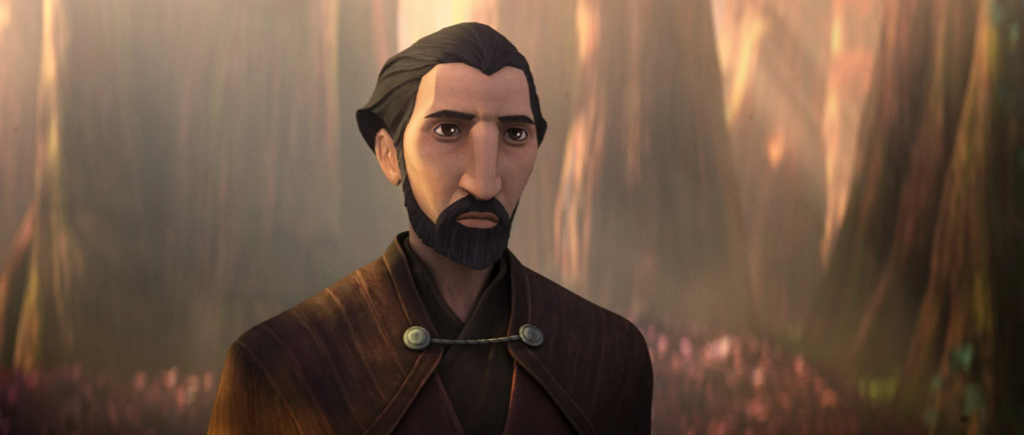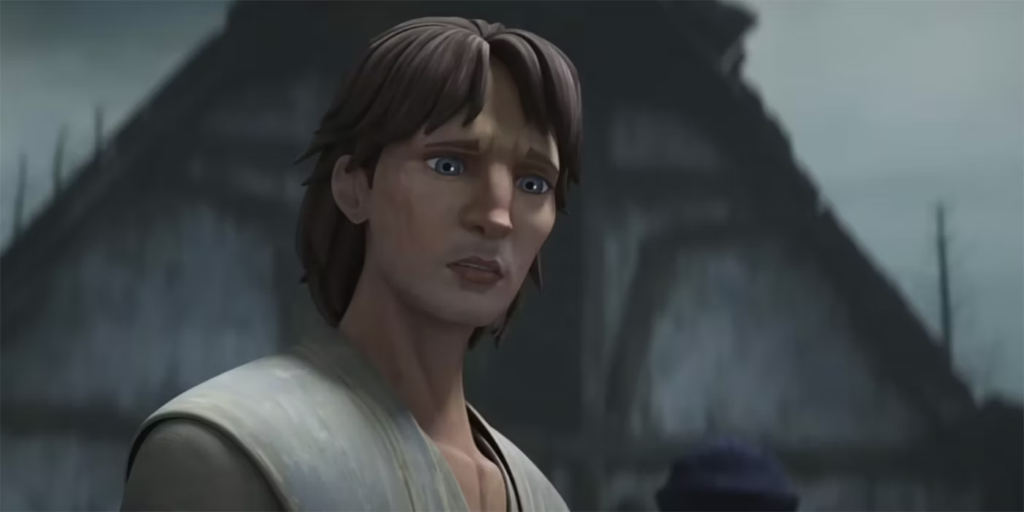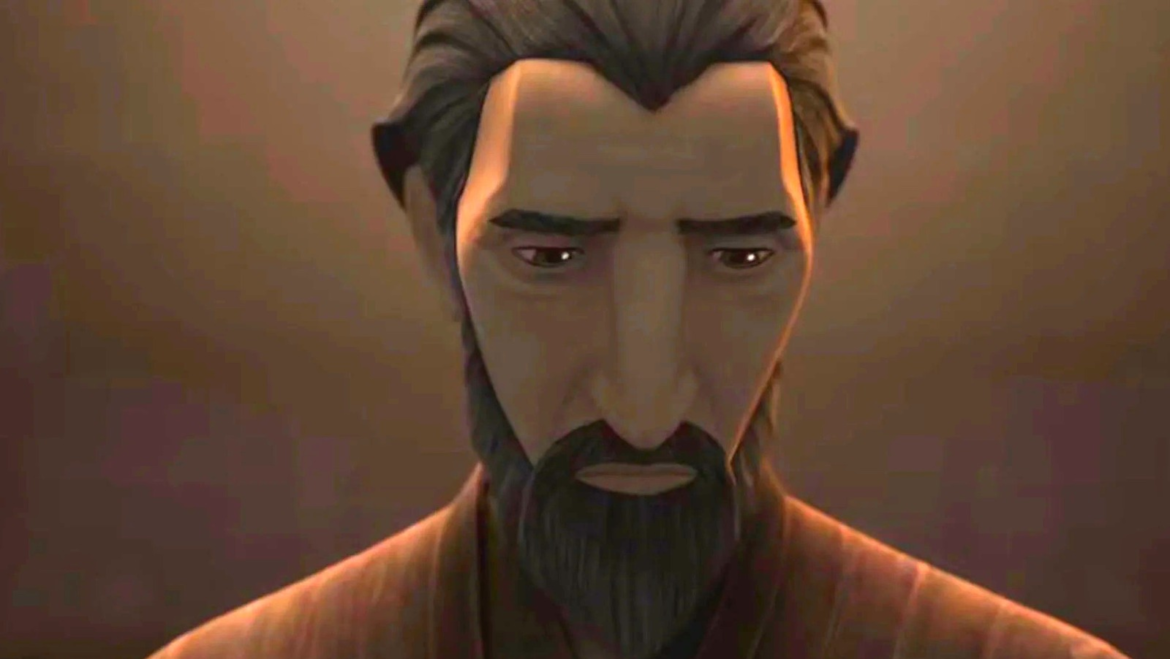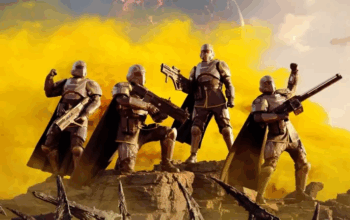On October 26, 2022, Disney Plus released a six-episode anthology of shorts with their animated series: Tales of the Jedi.

Written by Dave Filoni and produced in the same style as The Clone Wars (2008), these stories focused on key Jedi characters at different stages of their lives than what we’ve seen before. The segments that have gotten the most attention are the segments following the fall of Count Dooku.

Up until this point in Star Wars canon, the only real insights that could be gleaned of Dooku’s disillusionment and fallout with The Order came from the novel, Darth Plagueis, which detailed his early relationship with and political seduction by a young Senator Palpatine.
Background
Before his ascension as Darth Tyranus or taking his family title of Count, Dooku was a highly skilled and regarded Jedi master.

Ever since his introduction in an Attack of the Clones (2002), it’s clear that Count Dooku is not like other Star Wars villains. Unlike the Sith audiences have seen before, he does not wear intimidating armor or tattoos, and is never depicted as recklessly tearing through the frontlines, slashing guys left and right. While certainly no slouch when it comes to lightsaber combat, Dooku is a diplomatic leader whose greatest tool is ruthless pragmatism. In a way, Dooku is one of the real villains in the star wars universe. He’s not motivated by absolute power or money – but rather a meddling compulsion to, as he puts it, “save the galaxy from itself”.

For many years the corruption of the Republic Senate has stiffened any meaningful reform, and now that’s affecting the Jedi order. These three episodes delve into the specific moments that turned Dooku away from the Jedi and into the hands of Palpatine.
Justice

In his first episode, a young (and clean-shaven) Master Dooku takes his even younger apprentice Qui-Gon Jinn to an unknown planet to find a kidnaped senator’s son. Eventually, they find him held hostage by locals in a village that the senator’s self-enriching policies have impoverished.

When they were found by the senator’s forces, a brief exchange of words was uttered that perfectly symbolized Dooku before his turn.
>> “You Jedi serve the Senate!”
<< “No, We serve the people of this Republic”
The fighting got intense to the point Dooku force-choked, the senator and was about to execute him on the spot. It wasn’t until Quigon freed the son to confront his father that the fighting ceased.

This one story clearly encapsulates what Dooku and Qui-Gon’s days were like as master and apprentice. Despite Dooku’s headstrong resolve, he still holds his pupil in high regard, acknowledging that he’s even wiser than him. Both Jedi are different from their peers in that they don’t believe in following Council doctrine so blindly – they are idealists first, “Knights of the Republic” second.
Choices

This second short follows a slightly older (and now bearded) Dooku and Mace Windu, who have been sent to the planet Raxus – the future capital of the Dooku’s confederacy. Their mission is to recover the body of a fallen Jedi Council member.

Dooku, however, wants the murder mystery solved and gaslights the senator’s guards into revealing a plot ending in the politician’s death. Raxus guards were infiltrated by a rebel cell attempting to puppet the senator to oppose republic policies.
Their current senator was looking to enrich himself on Coruscant and open his planet for industrialization that threatens the planet’s sovereignty. This reflects what we still see in politics today – where senators and representatives effectively live too long in the rich urban capital cities, and not the local state they are (theoretically) supposed to represent.
What’s more, he was visibly moved by how The Order only does the bidding of senators and businessmen to take care of the squabble. It was at this moment that Dooku’s mind really begins to turn and realize that the order is not keeping the kind of peace that guarantees stability.

After returning the body to Coruscant, Dooku seemed upset that his friend Mace Windu would be taking the fallen Jedi’s council seat. He likely felt betrayed and passed-over because he believed simply solving the Jedi’s murder would earn him respect from the Council, perhaps even a seat there. Instead, that reward was given to Windu because he followed protocol where Dooku’s actions led to a senator’s death.
“Guided by our Council, and not by ego or politics.”
It is clear that The Council sees themselves as the highest moral authority in the galaxy – effectively a warrior clergy refusing to adjust to a changing galaxy. The Jedi claim to be non-political, but their conservative reticence to embracing real change has stopped them from supporting any meaningful reform – and in doing so, lost touch with the galaxy’s injustice.

The Sith Lord
This finale Dooku-themed episode takes place during the events of The Phantom Menace.

It starts with a prologue of Dooku deleting Kamino’s location in the archives and then being informed his former padawan Qui-Gon has encountered a Sith Lord, by which he is suspiciously unmoved.
An interesting bit here is that much of The Order was still highly skeptical of Qui-Gon’s claims since belief the Sith allowed themselves to become extinct for the past 1000 years. The master/librarian Jocasta Nu said as much:
“Qui-gon had quite an imagination, as did you.”
He then exchanges what would become some of his final words with his former pupal.
The episode then flashes forward to Dooku staring at the temple’s sacred tree. He was just informed of Qui-Gon’s death and reminisces how he used to take him there as a child. You can tell he’s very conflicted with all the events that have transpired, whether his clandestine deals have been all worth it.

And it’s all that detail that makes you think about what Dooku says to Obi-Wan a decade later in the films.
Dooku travels to the abandoned industrial part of Coruscant to meet Sidious. So already, it appears Dooku has been working with Sidious and serving as his Jedi contact. Despite Dooku working with Sidious for a common goal of “remaking the galaxy”, he still had his reservations as to the human cost of their little venture.
He even begins to question this when confronting Palpatine on the death of his former pupil. Perhaps Dooku could have had a change of heart… had Yaddle not intervened.
Deep down, Dooku still believes he’s a Jedi at his core, but he believes his actions have gone too far for him to turn back now. You feel for him and almost want to side with him. It was, unfortunately, the inevitable path that it leads that caused him to become the Christopher Lee cartoon villain we all know.
What makes Dooku’s duel with Yaddle so heartbreaking is that he’s dueling someone who agrees with him on nearly every level. Yaddle also begins to see the error of The Order, even going so far as to relinquish her council seat, but still believed Dooku could be pulled back from the brink.

Ultimately Dooku felt he was too far gone to turn back. When he executes Yaddle, he tries to give some comfort to his defeated foe by “giving her peace”. Dooku never enjoyed killing his fellow Jedi; it’s clear he had a lot of respect for his former friends. His commitment to whole full ideals of justice and order caused him to turn against everything he stood for.
Conclusion

Tales of the Jedi has shaded Dooku in a whole new light in a way we haven’t seen onscreen before. He wasn’t hungry for power. He was a man who wanted justice and truly believed in his cause.
… Or maybe I’ve just read too much separatist/anti-Imperial propaganda.
What makes Dooku’s story so compelling is the lack of a clear moral center. The Jedi Council is inherently beholden to their code to protect the republic failing to realize its very body was corrupt beyond repair. This is a situation with no clear answers to solve. It is this morally grey territory that the recent Disney star wars lineup has been lacking.
I hope that the people at Lucasfilm will continue this trend in further projects. Star Wars has always at been at its best when the moral lines are blurred.










Top site ,.. i will save for later !